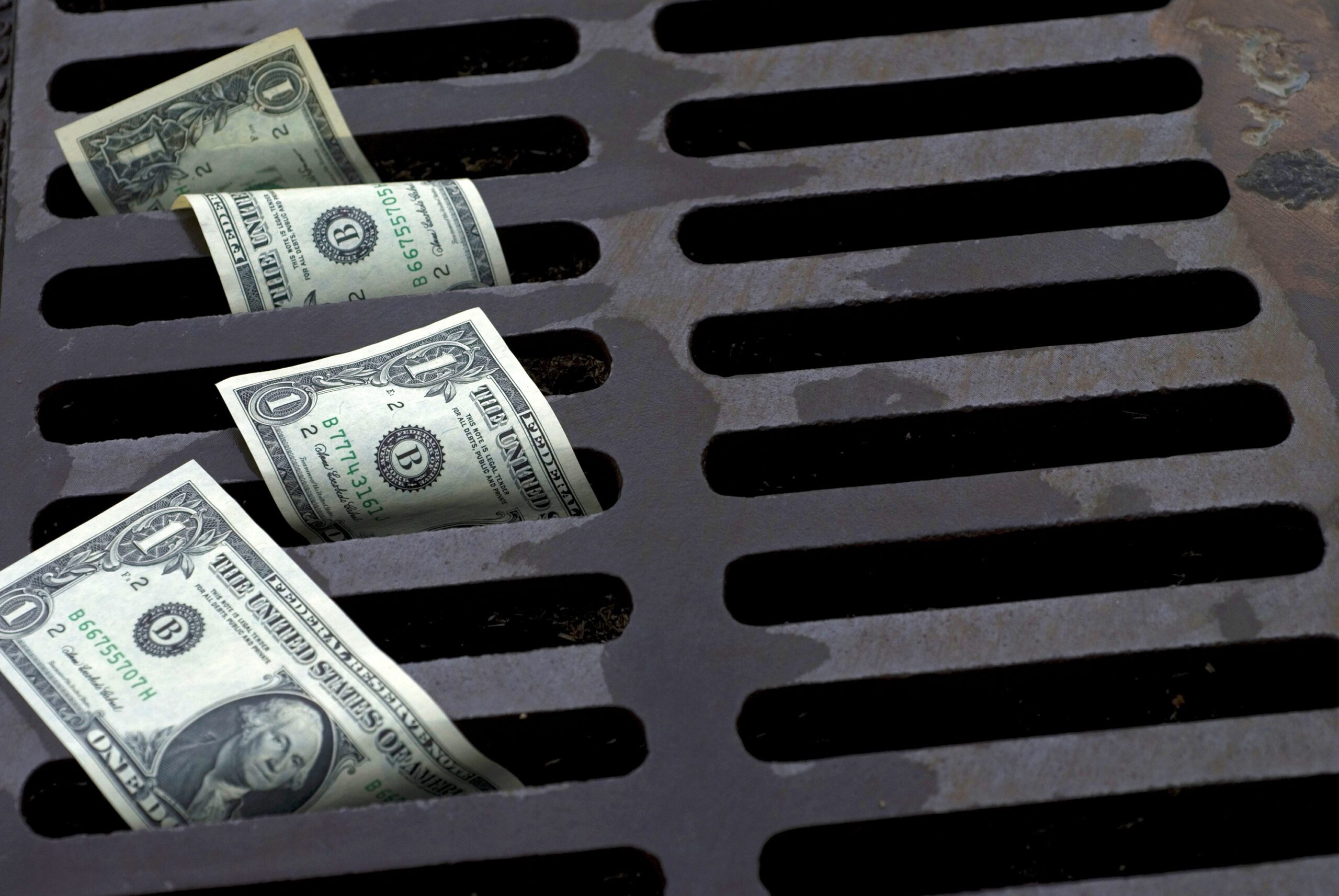
10 Things Americans Overspend On and What to Do About It
Americans are known for their diverse interests and spending habits. While some investments are essential, there are things that most people tend to overspend on. We will explore the list of items and areas where we find ourselves shelling out more than we should. We will uncover the reasons behind these trends, and, more importantly, discover how we can make wiser choices giving us greatest bang for the buck.
Introduction: The All-Too-Familiar Overspending Habit
If you’ve ever wondered where your hard-earned money mysteriously disappears to, you’re not alone. Many Americans, from young adults to retirees, have experienced the financial frustration of overspending. But what exactly are the things that trigger this widespread tendency to spend more than we should? Let me give you an overview into the spending habits and reveal the culprits.
What Makes Americans Overspend?
Overspending can be attributed to a variety of factors:
- Advertising Magic: It’s no secret that advertisers work their magic to entice us into buying. From flashy commercials to persuasive online ads, we’re bombarded with messages encouraging us to spend.
- Peer Pressure: Keeping up with the Joneses is an age-old phenomenon. We often spend more to fit in or compete with our peers.
- Emotional Spending: When emotions run high, the wallet often opens wider. Stress, happiness, or sadness can all lead to impulsive purchases.
- Credit Cards: The convenience of credit cards can make us forget that we’re actually spending money. It’s easy to overspend when you’re not handling physical cash.
- Lack of Financial Education: Many Americans are not well-versed in financial matters, which can lead to poor money management and, consequently, overspending.
Let’s break down the specific areas where folks from all walks of life tend to overspend and what we can do about it.
Housing: Bigger Isn’t Always Better
Housing is often the biggest expense, and it’s an area where overspending is prevalent.
Overspending in general
The American Dream often involves owning a spacious home with all the bells and whistles. This dream sometimes leads to overspending on housing.
Expert Insight: Real estate agent Lisa Smith, with over 20 years of experience, shares her thoughts: “Many clients want their dream home, but it’s crucial to find a balance between comfort and affordability. Overspending on housing can lead to financial stress in the long run.”
What You Can Do
- Budget Wisely: Determine how much you can comfortably spend on housing without compromising other essential expenses.
- Consider Downsizing: If your current living space exceeds your needs, downsizing can free up extra funds.
- Mortgage Shopping: Compare mortgage rates and terms from different lenders to secure the best deal.
Transportation Troubles
In the sprawling landscapes of America, transportation is not merely a means of getting from point A to point B; it’s a statement, a part of one’s identity, and often, a symbol of success. It’s no secret that average family has deep love affair with their cars. The gleaming showroom, the smell of a brand-new car, and the thrill of the open road – these are all part of the American dream. However, this love for automobiles often leads to significant overspending.
Let’s take a closer look at why transportation troubles are prevalent in the lives and what can be done to make more financially sound choices.
The Allure of the Automobile
Americans have a long-standing romance with cars. Owning a car is not just about mobility; it’s a statement of independence and success. Many people aspire to own the latest models, complete with cutting-edge technology, luxurious interiors, and impressive horsepower. The allure of a shiny, brand-new vehicle is undeniable.
The Costly Fascination
The trouble with this fascination is that it often comes with a hefty price tag. New cars, especially those with all the bells and whistles, can be quite expensive. Not only do you have to consider the initial purchase price, but there are also ongoing costs like insurance, maintenance, and fuel. And don’t forget the rapid depreciation that occurs as soon as you drive that new car off the lot.
The Urban Commuting Conundrum
For those living in cities, public transportation is a viable alternative. However, many Americans opt for personal vehicles due to the convenience and perceived status. The result is often traffic congestion, increased fuel consumption, and additional wear and tear on vehicles.
The Right Fit for Your Finances
Here are several ideas what can be done to navigate these transportation troubles more wisely;
1. Assess Your Needs: Before purchasing a vehicle, carefully assess your transportation needs. Do you need a large SUV or is a smaller, more fuel-efficient car sufficient for your daily commute? Understanding your needs can save you money and reduce your environmental impact.
2. New vs. Used: Consider buying a used car. They not only come at a lower initial cost but also depreciate less rapidly. Often, used cars have lower insurance premiums, which can also contribute to long-term savings.
3. Financing Options: If you decide to buy a new car, explore financing options carefully. Interest rates, loan terms, and down payments can have a significant impact on the total cost of your vehicle.
4. Public Transportation: If you live in an urban area, explore public transportation options. It’s often more affordable and environmentally friendly than owning a car. Carpooling and ridesharing services are also economical choices.
5. Maintenance Matters: Regular vehicle maintenance can prevent costly repairs down the road. Keeping your vehicle in good condition not only extends its life but also ensures it operates efficiently.
6. Reconsider Upgrades: While those fancy add-ons are tempting, consider if you really need them. Features like advanced infotainment systems and leather seats can dramatically increase the price of your vehicle.
The Allure of Dining Out
Ah, the allure of dining out – it’s a siren’s call that many of us can’t resist. The prospect of sitting in a cozy restaurant, the ambient lighting, the tantalizing aroma of sizzling dishes, it’s all enticing. Dining out is an experience that goes beyond just satisfying your hunger; it’s about indulging your senses and enjoying a break from the routine.
But this indulgence comes at a cost, often a higher one than you might think. That is reason why dining out is so tempting and why it can lead to overspending.
1. Culinary Delights Galore
One of the main reasons dining out is so appealing is the culinary experience. Restaurants, from casual diners to high-end establishments, offer a vast array of dishes that cater to all tastes. From mouthwatering burgers to gourmet truffle-infused pastas, there’s a dish for everyone. These delectable options make dining out a delightful adventure.
2. Convenience and Time-Saving
In our fast-paced lives, dining out offers the convenience of not having to cook, serve, or clean up. It’s a break from the daily grind, a chance to relax and enjoy a meal without the hassle of grocery shopping, cooking, and washing dishes.
3. Socializing and Celebrations
Eating out is a popular choice for social gatherings and celebrations. Whether it’s a birthday, anniversary, or simply a get-together with friends, restaurants provide the perfect setting for these occasions. The ambiance, attentive service, and the absence of kitchen responsibilities create a joyful atmosphere.
4. The Emotional Pleasure
Food is deeply connected to our emotions. Dining out allows us to associate positive emotions with the experience. A delicious meal can lift your spirits and create wonderful memories. It’s no wonder we often choose dining out to mark special moments.
However, this emotional attachment to dining out can sometimes lead to overspending. The desire for a memorable experience can push you to choose the pricier items on the menu, order more courses, or indulge in expensive wines or cocktails.
The Impact on Your Wallet
The impact of dining out on your wallet becomes clear when you start to add up the costs. Dining out is not just about the cost of the food itself; it includes taxes, tips, and possibly even valet parking fees. Over time, these expenses can accumulate, taking a significant bite out of your monthly budget.
A Savvy Solution
You’re asking, what can you do to enjoy dining out without breaking the bank? Here are some tips:
- Set a Budget: Decide how much you’re willing to spend on dining out each month and stick to it. This will help you keep your finances in check.
- Choose Wisely: Opt for restaurants that offer good value for money. Sometimes, a hole-in-the-wall eatery can provide an equally delightful experience without the high price tag.
- Share Dishes: Many restaurants serve generous portions. Consider sharing a dish with a friend or taking leftovers home. It not only saves money but also reduces food waste.
- Be Mindful of Extras: Drinks, appetizers, and desserts can significantly inflate the bill. Enjoy them occasionally, but make them exceptions, not the rule.
- Explore Specials and Discounts: Many restaurants offer happy hour deals, early bird specials, and loyalty programs. Keep an eye out for these to make the most of your dining experience.
Fashion and Clothing: The Fast Fashion Dilemma
Fashion trends change quickly, and overspending on clothing is a common pitfall.
Fast Fashion Temptation
The allure of fast fashion and ever-evolving trends can lead to overspending on clothing.
In the Words of a Shopaholic: Jane, a self-proclaimed shopaholic, shares her experience, “I used to buy clothes every week, but it left me with a closet full of items I rarely wore.”
What You Can Do
- Shop Mindfully: Prioritize quality over quantity. Invest in classic, versatile pieces.
- Capsule Wardrobe: Create a capsule wardrobe with a few essential, mix-and-match items.
- Secondhand Shopping: Explore thrift stores and online resale platforms for affordable, stylish finds.
The Enticing World of Entertainment
The world of entertainment captivates us from the moment we’re born. From our earliest days, we’re drawn to bright colors, playful sounds, and captivating stories. As we grow, this fascination with entertainment evolves, encompassing everything from blockbuster movies and live concerts to streaming services and gaming. It’s a world that’s inherently enticing, but it’s also one that often leads to overspending.
The Pull of Entertainment
Entertainment is more than just a pastime; it’s a form of escapism, a way to unwind, and a means of connecting with others. It has a powerful grip on our emotions and offers various forms of enjoyment, whether it’s the thrill of a rollercoaster ride, the laughter induced by a comedy show, or the immersion in a gripping novel.
Variety of Options
One of the primary reasons we find ourselves overspending on entertainment is the sheer variety of options available. From movie theaters to video games, theme parks to concerts, there’s no shortage of ways to have fun. This abundance of choices can make it challenging to resist the temptation to try them all.
Emotional Attachments
Entertainment often holds a deep emotional significance in our lives. We have favorite movies, bands, and sports teams that we feel connected to. These emotional attachments can lead us to invest more in experiences related to our beloved forms of entertainment.
Overspending on Tickets and Subscriptions
Ticket prices for concerts, sports events, and theme parks can be quite steep. Subscription services for streaming content, magazines, and more can also add up over time. It’s easy to overspend when you want access to all your favorite entertainment sources.
Overspending on Collectibles and Merchandise
Many fans enjoy collecting memorabilia and merchandise related to their favorite entertainment. Whether it’s limited-edition action figures, concert merchandise, or exclusive movie posters, the costs can accumulate quickly.
Overspending on Gaming and In-App Purchases
The gaming industry is notorious for enticing players to make in-app purchases. Whether it’s cosmetic items for characters or power-ups in mobile games, the microtransactions can become a financial pitfall.
Enjoying Entertainment Wisely
How can you revel in the enticing world of entertainment without letting it lead to overspending? Here are some tips:
1. Set a Budget: Determine how much you can allocate to entertainment in your monthly budget. This will help you make conscious decisions about what to spend on.
2. Prioritize Your Favorites: You don’t have to cut out entertainment entirely. Instead, prioritize what truly matters to you and cut back on the rest. If you’re a movie buff, keep your cinema outings but consider canceling that subscription box you rarely use.
3. Look for Deals and Discounts: Keep an eye out for deals, discounts, and promotional offers. Many entertainment venues offer special rates during off-peak hours or for students, seniors, or military personnel.
4. Share Expenses: Enjoy entertainment with friends or family and share the costs. Whether it’s splitting the bill at a restaurant or sharing a subscription service, this can significantly reduce your expenses.
5. Be Wary of Micro-transactions: If you’re a gamer, exercise caution when it comes to in-app purchases. Set limits on your spending, and avoid making impulse buys.






